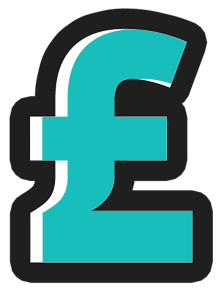

The benefits of a phonological assessment come from the following:
A phonological assessment by a clinical or educational psychologist provides additional information which a speech and language therapist would not provide. This information is used to increase understanding of needs and guide any recommendations.
A phonological assessment can be carried out following an initial discussion, please see our process below.
During a phonological assessment we will ask the child or young person to complete various speaking, listening and reading activities. These will allow us to identify areas of strength and difficulty.
The assessments used will be chosen based on the individual. The main phonological assessments we use are:
If we believe that a phonological assessment would be best carried out by our in house speech and language therapists then we would let you know during the initial discussion. The reasons for this may vary but it would usually be when the needs are complex.
After a phonological assessment we will have a clear understanding of an individual’s phonological profile, which can direct future input. Future input may involve a referral to our in house speech and language therapists for further assessment or intervention.
Reports are available upon request depending on your requirements. We provide a variety of report styles, from a summary report to a comprehensive report. Reports are a useful way to share findings or recommendations with other adults or professionals working with the child or young person. Learn more about the reports we offer.
A phonological assessment helps to identify any strengths or difficulties within the building blocks of speech. Understanding phonological needs can guide future input.
Arrange an initial discussion to find out how we can benefit your education setting. The initial discussion lasts 2 hours and is a starting point to identify needs. The cost is £260.
only
£260


Once again thank you for all your help and for actually listening to me when others wouldn’t.

Jodie (Parent)
Thank you Julie once again for the excellent report, it captured the child’s needs entirely - SENDIASS, parents and me commented on how well written it was. Many thanks for your continued assistance.

SENCO
Sarah Ward was brilliant with us. Really happy with the help and support, would recommend.

Joanne (Parent)
I think the work you have been doing has been great to help break the stigma of mental health and as a fellow sufferer I know how important that is.

Mental health professional
Many thanks for Sarah W’s hard work with our students which has been very well received.

Deputy Head
Really enjoyed it and learnt lots that I can take back to school. Thank you for the quality experience.

Sarah Tindal
Thank you Julie once again for the excellent report, it captured the child’s needs entirely - SENDIASS, parents and me commented on how well written it was. Many thanks for your continued assistance.

SENCO

We provide bespoke solutions to suit all budgets and requirements for children and young people aged 0-25 in homes, education settings and the community. Our clinical, educational and child psychology services are cost effective.
To make a referral and arrange an initial discussion please complete our referral form.

Ready to get started? The next step is to speak to our team to find out more about the services we provide and how we can help. Call us on 0161 820 9229 or email office@hsrpsychology.co.uk